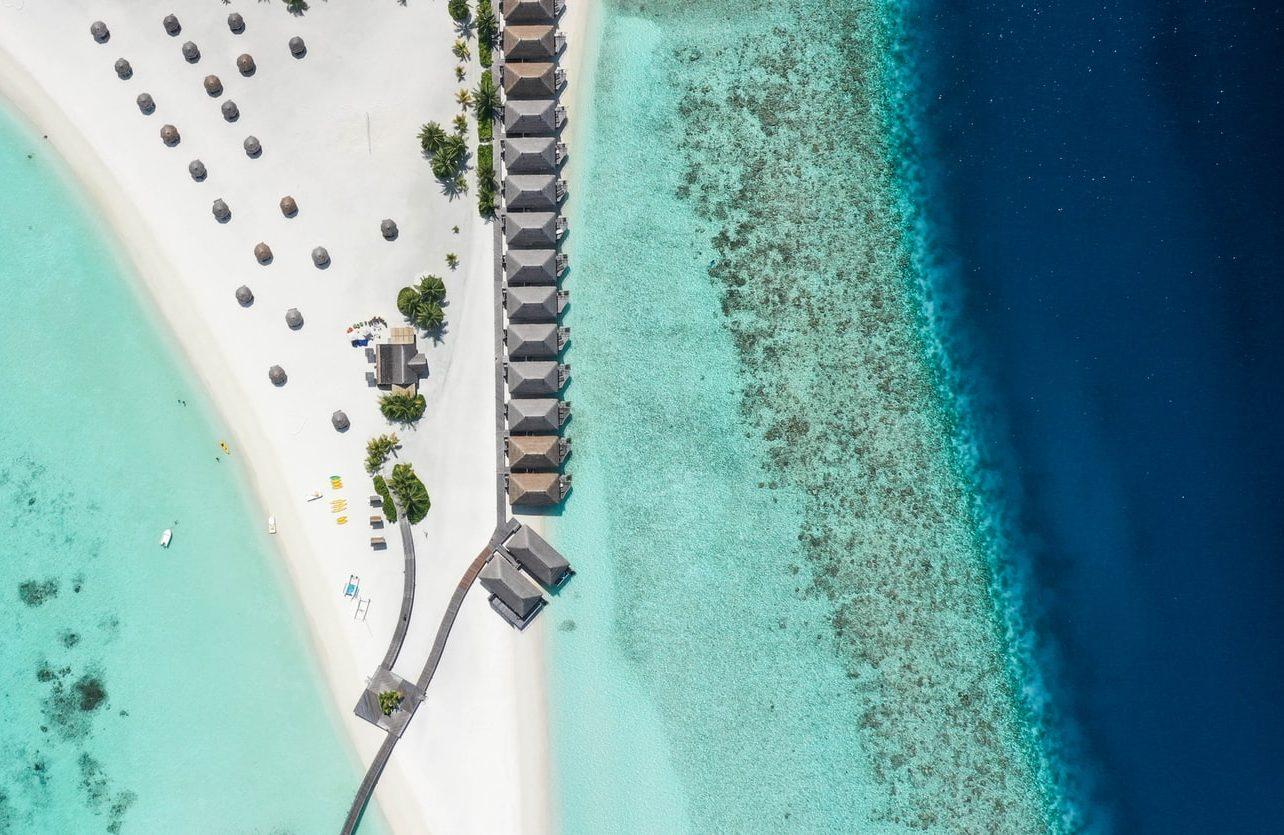Maldives’ economy hit hard by Covid-19 pandemic
Posted By Rasheeda M. Didi on October 14, 2020 @ 11:00

The World Bank predicts [1] that the Maldives will be the South Asian nation hardest hit by the Covid-19 pandemic.
That’s not surprising given that 70% of the country’s GDP flows from tourism. The cancellation of all 26 weekly direct flights from China has had the biggest single impact. Visitors from China had become the largest tourist group [2] up to September 2019. The cancellation of flights from India and Italy, the other two top tourist markets of 2019 [3], has also affected the economy profoundly.
Although the country’s borders were reopened on 1 July, the number of arrivals has been extremely low. To encourage more visitors, the Maldives highlighted health benefits such as the isolation provided by the ‘one island, one resort’ concept. Visitors are screened for the virus on arrival and are not required to spend time in quarantine.
But, after the border lockdown was lifted, the number of Covid-19-positive cases rose rapidly. By early August, the Maldives was ranked sixth in Asia and first in South Asia [4] in cases per capita.
The sudden build-up in numbers was mainly a result of residents of Malé, the capital, seeking to release frustrations and energy after three months of lockdown. For the younger generation, that involved going to coffee shops, restaurants and street corners without paying heed to government health measures.
The Maldives’ relationships with the three regional powers—China, India and Japan—remain largely the same as in pre-pandemic days. All three assisted with equipment and finance to combat the crisis. India stepped in as early as February, evacuating seven Maldivian students from Wuhan and providing 50,000 units of medicine, 580,000 kilograms of food and a medical team.
The Chinese government and private businesses also contributed with diagnostics, personal protective equipment, beds and ventilators. The relationship with Beijing is generally cordial, despite disagreement about the status of a free trade agreement which was rushed through parliament in 2018.
According to Beijing, the agreement falls under its Belt and Road Initiative, but the Maldivian government takes the view that none of China’s projects in the island nation are part of the BRI. It considers all Chinese projects as bilateral developmental aid.
Contrary to some claims, China’s recent demand for repayment of a US$10 million loan was not made to punish the Maldives for its close relations with India. In fact, it was part of a US$120 million loan to a resort owner associated with the previous administration and secured by a sovereign guarantee. This makes the loan the Maldivian government’s responsibility.
Under a ‘debt service suspension initiative’, China has reduced this year’s loan repayment to US$75 million from the scheduled US$100 million. Beijing has also indicated that it is prepared to discuss repayment terms for the remaining loans which were secured via state-owned companies.
The third power in the region, Japan, remains a close ally that gives aid to the Maldives in limited ways and in minimal amounts. During the Covid-19 crisis, Japan’s aid has been mostly financial. Apart from 9,000 surgical masks, assistance consisted of grants to UNICEF and the Red Crescent and to the United Nations Development Programme to support small and medium enterprises affected by Covid-19. Japan is not a rival to India or China in their drive for influence in South Asia.
Regardless of China’s efforts, India remains the dominant power in South Asia and the central Indian Ocean region. However, given the experiences of Sri Lanka, Pakistan and Djibouti, concerns remain about China’s potential dominance and ‘debt-trap diplomacy’. The Maldives owes US$1.5 billion to China, equivalent to 45% of the country’s national debt, and a potential debt-trap.
While there has been speculation from outside the Maldives that the economic crisis flowing from the pandemic will spark an increase in violent extremism, that doesn’t appear likely. Britain’s Foreign Office has warned [5], ‘Terrorists are likely to try to carry out attacks in the Maldives. Attacks could be indiscriminate, including in places frequented by expatriates and foreign travellers including tourists.’
But, historically, jihadist activities have not been tied to fluctuations in the country’s economy.
Covid-19 has created a bleak future for the Maldives, which now faces a projected budget deficit [6] of MVR13 billion (A$1.2 billion).
This post is part of an ASPI research project on the vulnerability of Indo-Pacific island states [7] in the age of Covid-19 being undertaken with the support of the Embassy of Japan in Australia.
Article printed from The Strategist: https://aspistrategist.ru
URL to article: /maldives-economy-hit-hard-by-covid-19-pandemic/
URLs in this post:
[1] predicts: https://documents.worldbank.org/en/publication/documents-reports/documentdetail/336011591808041663/maldives-development-update-in-stormy-seas
[2] largest tourist group: https://www.tourism.gov.mv/statistics/dashboard/2019/12
[3] two top tourist markets of 2019: https://www.tourism.gov.mv/en/statistics/dashboard
[4] Maldives was ranked sixth in Asia and first in South Asia: https://twitter.com/MahaldheebS
[5] warned: https://www.gov.uk/foreign-travel-advice/maldives/terrorism
[6] projected budget deficit: https://edition.mv/business/16350
[7] ASPI research project on the vulnerability of Indo-Pacific island states: https://www.aspistrategist.ru/report/indo-pacific-island-states-vulnerabilities-age-covid
Click here to print.